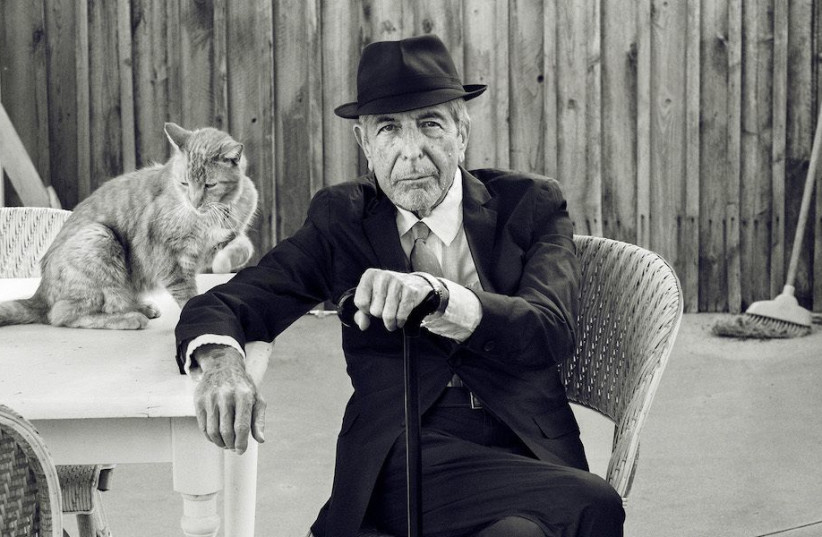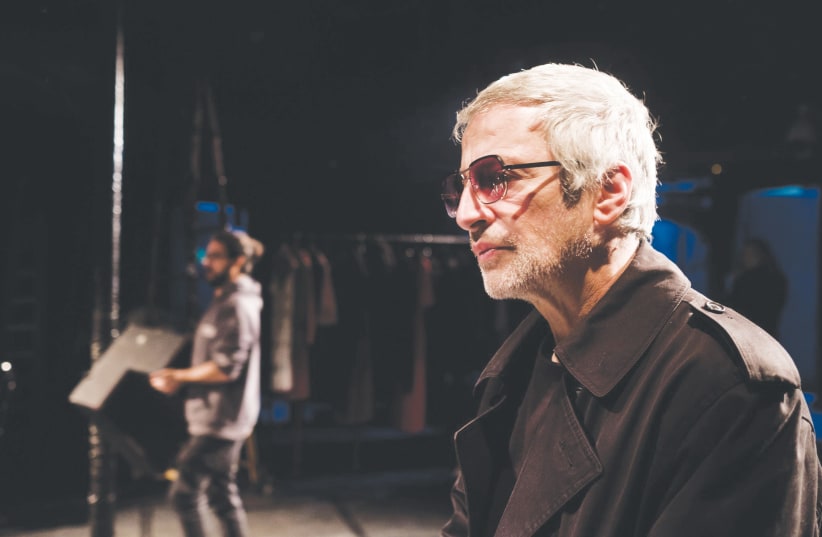Antigone by SophoclesTmuna Theater, Tel Aviv, March 7
Wearing a dark suit and an earpiece, actor Matan Preminger demanded a fellow theater-goer hand him identification papers in this intense, fully immersive production of Antigone by Sophocles. The man first handed him a theater program, yet, under Preminger’s scolding gaze, offered his actual papers. “So, Amir,” the security detail to King Creon (Gil Alon) asked the spectator, “why are you in Antigone today?”
In her adaptation of the Greek classic, which high-school students are required to read, Nava Zuckerman went deep into the mythic heart of the work and expanded her reach to include the messy political reality outside.
The corpse of Polynices (Ilan Zacharov), slain in battle over the crown of Thebes by his brother Eteocles, returned to life to tell us the gory details teachers leave out.
“My grandfather Laius raped Chrysippus,” a boy and the son of King Pelops, “and killed him,” Zacharov told us from his gurney. “For this he was cursed by the Gods, he would sire a son who would murder him and bed his own mother, Jocasta, this was my father, Oedipus.”
For us moderns, child-rape is the horrific crime that began this tragedy. For the Greeks, Laius was guilty of one more offense. He was a guest of Pelops and violated his trust. For the Greeks, hospitality was decreed by the Gods as without it, communication and trade between the Greek cities would cease.


“The country is our safety,” Alon informed the audience gathered in front of him as the security detail bolted the doors of the theater. In the form of a televised speech, we were informed Eteocles, who defended Thebes, would be given a state funeral. Yet his brother, Polynices, who attempted to wrestle the crown away from his brother and raised a sword against his homeland, would be left to rot.
At that moment, Oedipus (Eyal Shehter) barged in. “I am still relevant!” he shouted. “They lie to us,” he implored the patrons, “they say this plague will pass, this war will pass, we are those who pass!”
Fusing the character of Tiresias, the blind prophet, and Oedipus, who gouged out his eyes when he realized the pollution of his existence, “unspeakable, horror of son and mother mingling”, Zuckerman offers us a post-modern insight. We moderns, are deaf to the pleas of those who suffered and became wise before us. We continue to obey the security detail, to show our documents, to listen to the televised speech of the monarch. As Itai Doron (Haimon) taunted us, we are led like “lambs to culture.”
LED WE were.
Patrons are rushed from one scene to another, each telling taking place in a different setting. Audience members are invited to partake of Creon’s pizza, to light a candle with Antigone to honor their own departed, and offer her a smoke before her execution.
“How could Sophocles be such a genius to imagine Oedipus complex 2000 years before Freud?” the actors ask patrons when we are in their rehearsal room. How could the Greek playwright describe a ruler obsessed with “stiff-necked anarchists scheming against me in alleys” two millennia before Prime Minister Benjamin Netanyahu?
As is the fashion now, Zuckerman has her actors question the very point of making theater these days. “Theater is my life,” Doron told us, “that and Leonard Cohen.” “All these people are very intelligent,” Antigone (Lena Freifeld) tells her comrades with us watching. “Why don’t we just give them the text? They can read.”
The stunning choreography of the play is one reason. When Freifeld touches the hair of her sister Ismene (Shira Katzenelenbogen) both actresses introduce tenderness written texts lack. Katzenelenbogen is asked to fetch water during the wake when all cast members demand drinks. As they raise cups and drain their fill to ask again, and again, she is led to despair at this unrelenting labor. This is a stunning performance of a normative woman, unlike her sister, ground to dust by the social machinery of role and duty.
“What is a family?” Alon asks us between mouthfuls of dough and cheese, “a bunch of people you don’t even want to sit down for coffee with!” As he tossed slices to patrons who accept his logic, the excellent Preminger ran while munching a slice of his own. A generation after Netanyahu told striking students his wife made pizzas for them, Oedipus caught up with the state we live in.
Antigone will have two more performance coming up later this year – Saturday, May 27, and Sunday, May 28, at 8 p.m. NIS 80 per ticket. The show requires walking and stair-climbing and is not suitable for those who are handicapped. Hebrew only. 8 Shontzino St. Tel Aviv. Phone (03) 561 1211 to book. This is an adaptation, the quotes used in this review are from the 1939 translation by Dudley Fitts and Robert Fitzgerald.












